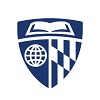Job Description
The BS in the Engineering Mechanics degree program is accredited by the Engineering Accreditation Commission of ABET, https://www.abet.org, under the General Criteria and the Program Criteria for Engineering Mechanics and Similarly Named Engineering programs.
The mission of the B.S. in engineering mechanics degree program is to provide a rigorous educational experience that prepares a select group of students for leadership positions in the profession and a lifetime of learning. The faculty is committed to maintaining a modern and flexible curriculum which, building on a foundation of basic sciences and mathematics, develops a solid education in the mechanical engineering sciences. The aim of the Engineering Mechanics program is to build competence in the analysis, design, and modeling of fluid and solid systems, to promote a broad knowledge of the contemporary social and economic context, and to develop the communication skills necessary to excel.
The curriculum is intended to enable graduates to explore fundamental questions in many fields of engineering. Emphasis is placed on the basic sciences (mathematics, physics, and chemistry) and on the analysis, modeling, and design aspects of solid and fluid engineering systems. Although specific core courses are required, the student is encouraged and guided by their advisor to select an individual program of study, within ABET guidelines, according to the student’s particular goals. This program of study may range from a general study of mechanics or engineering science to more specialized programs in a variety of areas, such as robotics, fluid dynamics, environmental engineering, mechanics of solids, experimental mechanics, dynamical systems, mechanics of materials, or biomechanics.
This flexibility makes the program ideal for double-majors and for those wishing to tailor a strong foundation for graduate work in a wide range of disciplines. All engineering science, engineering mechanics, and technical elective courses must be at the 300-level or higher. Exceptions can be considered in consultation with the faculty advisor, but will be uncommon.


